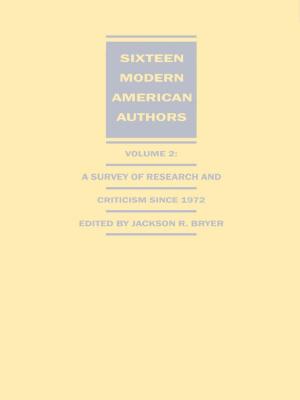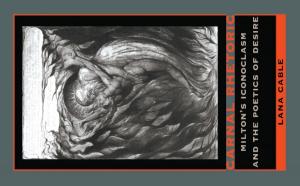| Author: | Frank Lentricchia, Stanley Fish, Fredric Jameson | ISBN: | 9780822380498 |
| Publisher: | Duke University Press | Publication: | December 15, 2000 |
| Imprint: | Duke University Press Books | Language: | English |
| Author: | Frank Lentricchia, Stanley Fish, Fredric Jameson |
| ISBN: | 9780822380498 |
| Publisher: | Duke University Press |
| Publication: | December 15, 2000 |
| Imprint: | Duke University Press Books |
| Language: | English |
Lucchesi and The Whale is an unusual work of fiction by noted author and critic Frank Lentricchia. Its central character, Thomas Lucchesi Jr., is a college professor in the American heartland whose obsessions and compulsions include traveling to visit friends in their last moments of life—because grief alone inspires him to write—and searching for secret meaning in Herman Melville’s Moby-Dick. Himself a writer of “stories full of violence in a poetic style,” Lucchesi tells his students that he teaches “only because [his] fiction is commercially untouchable” and to “never forget that.” Austerely isolated, anxiety-ridden, and relentlessly self-involved, Lucchesi nonetheless cannot completely squelch his eagerness for love.
Having become “a mad Ahab of reading,” who is driven to dissect the “artificial body of Melville’s behemothian book” to grasp its truth, Lucchesi allows his thoughts to wander and loop from theory to dream to reality to questionable memory. But his black humor-tinged musings are often as profoundly moving as they are intellectual, such as the section in which he ponders the life and philosophy of Ludwig Wittgenstein in relation to the significance of a name—and then attempts to share these thoughts with a sexy, middle-aged flight attendant—or another in which he describes a chance meeting with a similarly-named mafia don.
Despite apparent spiritual emptiness, Lucchesi in the end does find “a secret meaning” to Moby-Dick. And Lentricchia’s creations—both Lucchesi and The Whale and its main character—reveal this meaning through a series of ingeniously self-reflective metaphors, in much the way that Melville himself did in and through Moby-Dick. Vivid, humorous, and of unparalleled originality, this new work from Frank Lentricchia will inspire and console all who love and ponder both great literature and those who would write it.
Lucchesi and The Whale is an unusual work of fiction by noted author and critic Frank Lentricchia. Its central character, Thomas Lucchesi Jr., is a college professor in the American heartland whose obsessions and compulsions include traveling to visit friends in their last moments of life—because grief alone inspires him to write—and searching for secret meaning in Herman Melville’s Moby-Dick. Himself a writer of “stories full of violence in a poetic style,” Lucchesi tells his students that he teaches “only because [his] fiction is commercially untouchable” and to “never forget that.” Austerely isolated, anxiety-ridden, and relentlessly self-involved, Lucchesi nonetheless cannot completely squelch his eagerness for love.
Having become “a mad Ahab of reading,” who is driven to dissect the “artificial body of Melville’s behemothian book” to grasp its truth, Lucchesi allows his thoughts to wander and loop from theory to dream to reality to questionable memory. But his black humor-tinged musings are often as profoundly moving as they are intellectual, such as the section in which he ponders the life and philosophy of Ludwig Wittgenstein in relation to the significance of a name—and then attempts to share these thoughts with a sexy, middle-aged flight attendant—or another in which he describes a chance meeting with a similarly-named mafia don.
Despite apparent spiritual emptiness, Lucchesi in the end does find “a secret meaning” to Moby-Dick. And Lentricchia’s creations—both Lucchesi and The Whale and its main character—reveal this meaning through a series of ingeniously self-reflective metaphors, in much the way that Melville himself did in and through Moby-Dick. Vivid, humorous, and of unparalleled originality, this new work from Frank Lentricchia will inspire and console all who love and ponder both great literature and those who would write it.















